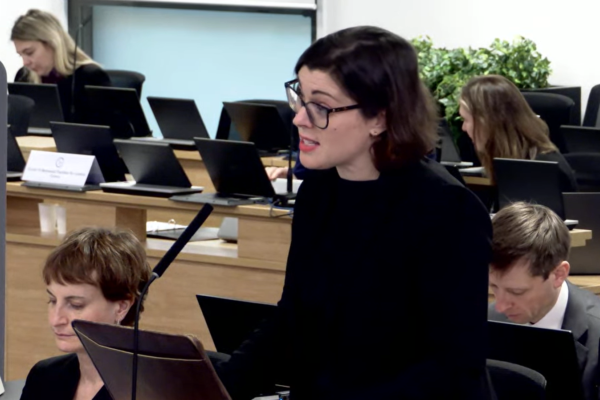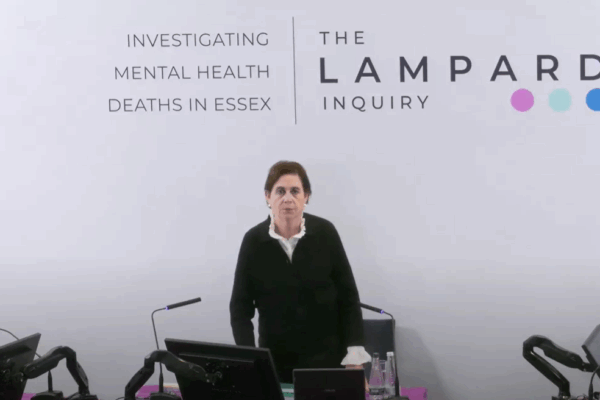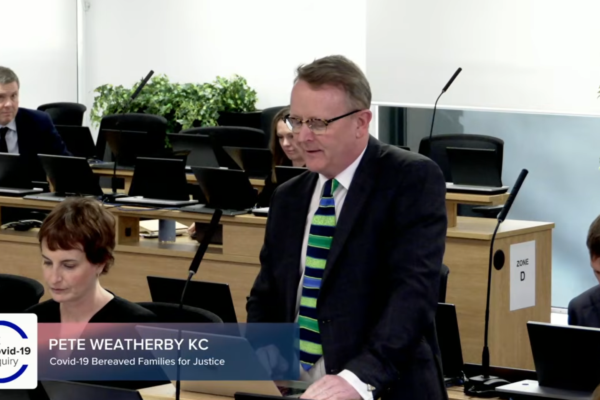Awaab’s Law must impact every tenant in the country. On Monday, MPs debated it.
22 July 2025

Awaab Ishak (pictured) was two years old when he died due to prolonged exposure to mould in his social home in Rochdale. Credit: Family Handout.
This article was written by Garden Court North’s Christian Weaver, originally published by the Manchester Evening News. Christian represented Awaab Ishak’s family during the inquest and subsequent petition for Awaab’s Law launched by Shelter and the Manchester Evening News.
I vividly remember the days following the inquest into Awaab Ishak’s death. The Coroner had delivered her damning conclusion and called the inquest a “defining moment for the housing sector”. We were no longer deep in late-night case preparation, no longer cross-referencing medical records and housing reports. Life outside the courtroom was slowly coming back into view – but it didn’t feel the same.
Among those of us closely involved in the case, there was a deep, reflective stillness. Collectively, we were forced to come to terms with a single, unthinkable truth: Awaab’s family had done everything humanly possible. They had asked, begged, followed every rule – and still lost their two-year-old son to prolonged exposure to mould.
In the days that followed, one sentence echoed hauntingly between us: “There was literally nothing more they could have done.”
It was not just a reflection, but a reckoning with the limits of the law, and with the reality that a family can do everything right, and still be failed.
That moment has never left me and it’s why, as Awaab’s Law is set to come into force this October, we have to ask ourselves what kind of legacy we want it to leave. It must not just exist on paper; it must be felt in homes across the country.
That starts by understanding exactly what’s on the table. Yesterday (21 July 2025), MPs debated draft regulations for Awaab’s Law in the House of Commons, with overwhelming cross-party support.
Once approved, social landlords will be under a new legal duty to investigate and act on significant risks within strict timeframes when the law comes into force on 27 October 2025.
Under the Government’s recent draft guidance, this duty will apply to:
- All emergency hazards, and
- All damp and mould hazards that present a significant risk of harm to tenants
The expectations are clear:
- Landlords must investigate reported issues within ten working days and issue written findings within three.
- If a serious risk is identified, repairs must begin within five working days of the investigation concluding.
- For potential emergency hazards, landlords must investigate within 24 hours of becoming aware of the issue. If confirmed, safety works must be carried out within the next 24 hours, or as soon as reasonably practicable.
- If the required repairs cannot be completed within those timeframes, suitable alternative accommodation must be offered.
Awaab’s Law, officially known as the Hazards in Social Housing (Prescribed Requirements) (England) Regulations 2025, isn’t just a technical reform. It marks a shift in power, imposing firm, legal limits on how long landlords can delay, and gives tenants a clear set of rights they can point to.
27 October is just the beginning. In 2026, Awaab’s Law will expand to cover other serious hazards – including those linked to fire safety, falls, and electricity. In 2027, it will extend to cover practically all remaining health risks identified under the Housing Health and Safety Rating System.
The Government deserves credit for the undeniable progress Awaab’s Law represents. Now, Angela Rayner and the Government must follow through on their promise to extend the same protections to private renters. It would be inexcusable to postpone action until another tragedy happens in private housing akin to Awaab’s death in social housing.

Positively shifting the fabric of something as entrenched as the UK’s renting system starts with honesty about what this law is – and what it isn’t. Awaab’s Law is not about assuming every case of damp or mould points to landlord failure. But when tenants report a clear health hazard and the response is dismissive, slow, or non-existent, that is when a line is crossed. That’s when lives are put at risk.
Many landlords, both social and private, want to do right by their tenants. They take pride in the homes they let out and act quickly when issues arise. But the law is there to deal with the landlords who do not: those who fail to respond, who put cost before safety, and who ignore the families raising concerns until it’s too late.
Those families exist in both social and private rental sectors. I see them in the work I do – parents with children struggling to breathe, and tenants taking time off work to chase repairs.
Awaab’s Law was named after a little boy whose life was cut short not just by mould, but by inaction. His parents – from Sudan – were not heard until it was too late. This law is a tribute to their courage in speaking out so that others might be protected.
As it stands, however, those protections the law enforces are tied to the kind of landlord a person rents from. That is a gap we simply cannot justify.
This is about creating a standard that everyone – tenants, landlords, and policymakers – can understand and uphold. It’s about fairness. It’s about consistency. And it’s about valuing lives equally, no matter who owns the property.
Come October, Awaab’s Law will rightly kickstart a process of fundamentally altering the legal landscape of social housing. Let it also be the beginning of something larger – a new culture of accountability, a shared standard of decency, and a firm line in the sand that says: no-one in this country should have to live in a home that leaves them sick.
Let’s honour Awaab not only by implementing the law in his name – but by ensuring its spirit reaches every home, and every tenant, across this country, before another heart-wrenching tragedy befalls us yet again.
Additional media
Manchester Evening News – ‘No one in this country should have to live in a home that leaves them sick’
Garden Court North Chambers – Ministry of Housing’s draft guidance on Awaab’s Law an “important and long-overdue step towards protecting tenants”
The Guardian – Awaab Ishak’s death shed light on a social housing scandal. Now we have a brief chance to fix it
For further information, please contact Alex Blair, Communications Manager at Garden Court North Chambers: ablair@gcnchambers.co.uk





